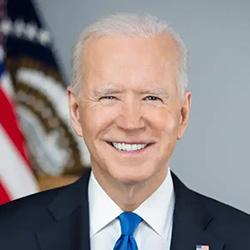
President Biden signed into law Tuesday the Inflation Reduction Act, which has significant healthcare provisions. According to one industry expert, however, the legislation falls short on helping older adults in some areas.
“The Inflation Reduction Act, unfortunately, does not address the affordable housing and homelessness crisis among older adults at a time when demand is rapidly growing,” a spokesperson for LeadingAge told the McKnight’s Business Daily. “Today, homelessness among older adults has resulted in the ‘graying of America’s homeless population.’ With an infusion of new affordable housing funding, the nation can reverse this dangerous trajectory.”
The $750 billion healthcare, tax and climate bill, among other things, will limit the cost of insulin for Medicare beneficiaries with diabetes. It also caps the cost of all prescription drugs at $2,000 per year for those enrolled in Medicare Part D. Additionally, the Medicare program will be allowed to negotiate the price of some drugs directly with drug manufacturers.
A drawback of the Inflation Reduction Act, Forbes reported, is that many provisions will be phased in over time. “Older Americans may not feel much of its impact for years,” the media outlet said.
Others are more optimistic.
“This first national co-pay cap is a significant step in the right direction and a potentially life-saving policy change for seniors,” stated Lisa Murdock, chief advocacy officer for the American Diabetes Association. The benefit should be expanded to all people with diabetes who rely on insulin to survive, she added.
Fred Riccardi, president of the Medicare Rights Center said that financial protections and structural improvements in the act “will be nothing short of lifesaving.”
“Every day on Medicare Rights’ national helpline, we hear from older adults and people with disabilities who are struggling to pay for care,” he said. “They may go without, or may cut back on other basic needs, like food or rent, just to fill a prescription. The [act] will help ensure fewer people face these impossible choices.”
The PAN Foundation concurred, calling the legislation “a huge step toward expanded healthcare access.”




